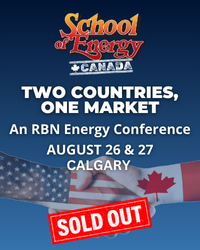Faced with uncertain growth in demand for refined products in the U.S., at least five refiners with major U.S. operations — including majors Shell, BP and Chevron — joined the bidding at a recent auction offering access to Mexico's downstream distribution system. Energy market reforms now unraveling national oil company Petróleos Mexicanos’ domestic supply monopoly are providing this opportunity. Initial auction winner Tesoro gained storage and pipeline capacity in two states in northwestern Mexico it expects to supply from a Washington state refinery. The market reforms also extend to retail gasoline stations, and majors BP and ExxonMobil as well as Valero and international trader Glencore have recently announced plans to launch retail networks in Mexico. Today we review the access Tesoro won in the first logistics auction as well as the wider Mexican market opportunity for refiners with operations north of the border.
Increasing Reliance
We have previously detailed how Mexico has become reliant on the U.S. for imports of gasoline and diesel to supplement its aging refining system (see Borderline – Mexico’s Increasing Reliance on U.S. Motor Gasoline and Diesel). Last month we highlighted how important U.S. exports of distillate – including diesel to Mexico — have become (see Livin’ La Vida Local). Mexico's energy market reform law, enacted in December 2013, ended Pemex's monopoly over the oil and natural gas sector (see our Drill Down Report With a Little Help From My Friends). In the downstream refining and marketing sector, that has meant opportunity for outside investment in Pemex’s refinery projects as well as outside access to Pemex storage and pipeline logistics assets. (This blog is based on a recent note published by Morningstar Commodities and Energy Research.)
Price liberalization is a major incentive required to encourage outside interest in Mexico's downstream business. Until this year, the Mexican government controlled refined product prices at levels below international markets, which meant that outside competitors would lose money distributing imported gasoline and diesel to end users such as retail gas stations. Starting in January (2017), Mexico’s energy regulator, Comisión Reguladora de Energía (CRE), has sought to liberalize prices gradually — setting maximum retail prices for gasoline and diesel by region. Then, at the end of March, CRE ended control over prices in the northwest region that encompasses the states of Baja California and Sonora. This liberalization has so far had little effect, with most retailers keeping prices at levels just below the maximums prevailing in nearby states. This is hardly surprising because Pemex still controls the supply, storage and distribution of refined products. Although more than 100 companies have been awarded import permits by CRE they have little incentive to deliver refined products without open access to the distribution system.
Join Backstage Pass to Read Full Article






